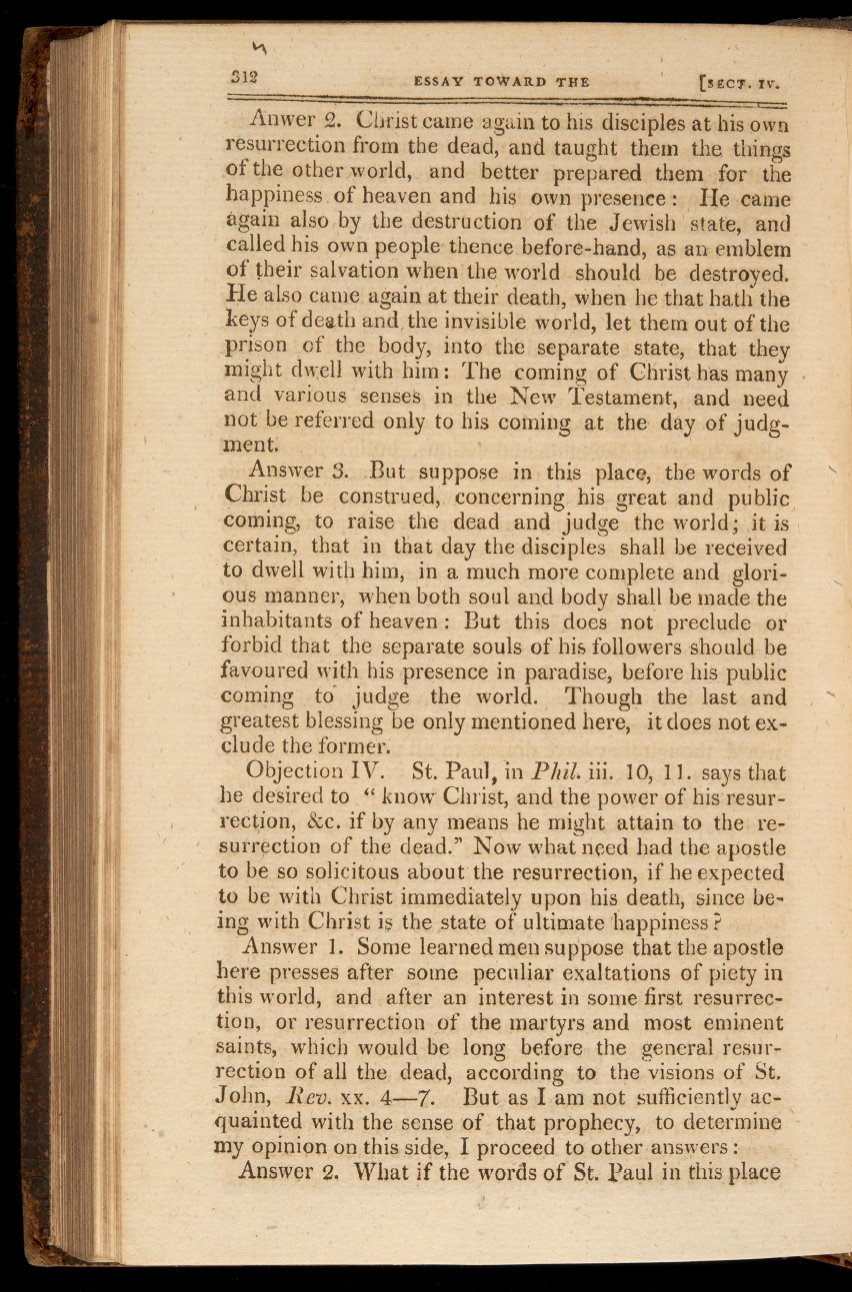

ESSAY
TOWARD
THE
[SECT.
Iv.
Anwer
2.
Christ
carne
again
to
his
disciples
at
his own
resurrection
from
the dead,
and taught
them
the,
things
of
the
other
world, and
better prepared
them for
the
happiness of heaven and
his own
presence
:
IIe
came
again
also
by
the destruction
of
the Jewish state, and
called
his own
people thence
before -hand,
as
an emblem
of
their
salvation when the world should
be
destroyed.
He
also
came again
at their
death, when
he
that hath
the
keys
of
death and, the
invisible world,
let
them
out of
the
prison
of
the
body,
into
the
separate
state,
that
they
might
dwell
with
him
:
The
coming
of Christ
has many
and
various
senses in
the New Testament, and need
not
be
referred
only to
his
coming
at
the day
of
judg-
ment:
Answer
3.
But suppose
in this place,
the words
of
Christ
be
construed, concerning
his
great
and public
coming, to
raise the dead and
judge
the
world; it
is
certain,
that
in
that
day
the
disciples shall
be
received
to
dwell with him, in a much
more complete and glori-
ous manner, when both
soul
and
body shall be made
the
inhabitants of
heaven
:
But
this
does
not
preclude
or
forbid
that
the
separate
souls
of
his followers
should
be
favoured
with
his
presence
in
paradise, before
his
public
coming
t6
judge
the
world.
Though
the last and
greatest
blessing be only
mentioned
here,
it
does
not ex-
clude
the former.
Objection
IV.
St.
Paul,
in
Phil.
iii.
10, 11.
says
that
he
desired
to
"
know-
Christ, and
the power
of
his
resur-
rection,
&c.
if
by
any means
he
might
attain
to
the
re-
surrection
of
the dead."
Now
what need
had the apostle
to
be so
solicitous
about
the resurrection,
if
he
expected
to
be
with
Christ
immediately upon
his
death,
since
be-
ing
with
Christ
is
the
state
of
ultimate
'happiness
?
Answer
1.
Some
learned
men
suppose
that
the
apostle
here
presses
after
some
peculiar exaltations
of
piety in
this world,
and after
an
interest
in
some first
resurrec-
tion, or
resurrection
of
the martyrs
and
most
eminent
saints,
which would be long before
the general
resur-
rection
of
all
the dead, according to the
visions
of
St.
John,
Rev.
xx.
4
-7.
But
as
I
am
not
sufficiently
ac-
quainted
with
the sense
of that
prophecy,
to
determine
my
opinion
on
this side,
I
proceed
to
other
answers
:
Answer
2.
What if
the words
of
St.
Paul
in this
place

















